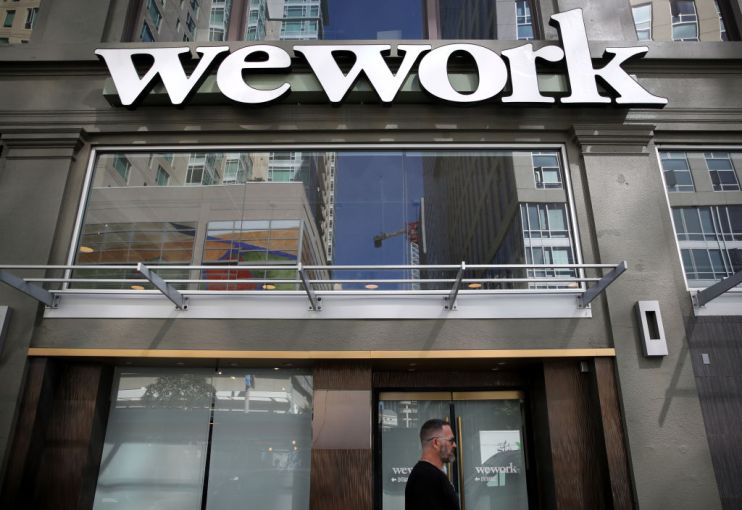Renting a Wework office? Here’s what happens next

Wework filed for Chapter 11 bankruptcy in the US last night. What does that mean for UK offices and occupants?
While the co-working giant said locations outside the US and Canada would be unaffected, some experts suggest UK Wework users should “sit tight” but prepare for the worst.
Alexandra Foxon, a real estate disputes lawyer at Osborne Clarke, said Wework’s bankruptcy “probably doesn’t have an immediate impact on its UK portfolio”.
This is because its leases are in the names of special-purpose vehicles (SPVs), which are “discrete legal entities”.
Foxon added: “Either a holdco or each SPV would need to be placed into insolvency (either administration or liquidation) to wind up the UK portfolio.
“The structure is pretty complicated so there are plenty of options, however, the US bankruptcy is a good indication to landlords that UK rents may not be paid and, because of the SPV model, there may be no substance behind the tenant companies to enforce debt against.”
City A.M. understands that for the offices that may be closing in or around the UK as part of its renegotiation agreements, members are notified four weeks in advance.
In this scenario, Wework would provide support in finding alternative workplace solutions, whether within another Wework location or at a different one that fits the members’ needs.
So what should Wework UK members do?
In the meantime, experts have suggested that immediate action does not need to be taken for members of Wework in the UK.
However, they should continue to stay informed and monitor any new developments.
These could include reviewing leases and termination rights, considering alternative workplaces in case theirs are closed or become too expensive, and formulating relocation plans.
Calum Russell, chief executive of flexible workspace operator Covalt, said: “For the time being, customers of Wework in London would do well to sit tight, continue to pay their rent and use their flexspaces as normal. It doesn’t seem as though most are about to be forced to depart imminently.
“At the same time, it is probably prudent investigating alternative flexspace options in the area in a worst-case scenario where initiating a business continuity plan becomes necessary.”
What would happen to empty Wework space?
While there has been no formal announcement about the future of Wework in the UK, if it were to go under, some say it wouldn’t be all doom and gloom for the wider market.
According to figures seen by City A.M. from real estate information firm Costar, the number of office vacancies in London sits at 9.2 per cent, but this could rise to close to 10 per cent if the troubled company goes bust.
Russell said Wework’s issues were “unique”, indicating that they do not represent others in the flexible office space market.
It was reported today that British Wework rival IWG, which operates the Regus and Spaces brands of commercial offices, said it was on the hunt for more deals after already acquiring some Wework office spaces earlier.
Russell added: “With a handful of exceptions much of the space is grade A stock and in some prime central London locations, meaning it’s likely to be snapped up quickly by occupants.
“We are yet to know the full extent of the Wework fallout, but we can be certain of one thing – flexible office space is here to stay.”
A Wework spokesperson said: “London is, and always will be, one of our most important markets, and we are fully committed to providing our members with world-class, flexible workspace solutions for the long term.
“We continue to work collaboratively with our landlord partners on solutions that set all parties up for sustainable success. The proactive decision to commence a strategic reorganisation in the US will holistically address our high cost and inflexible lease portfolio and position the company for success.”